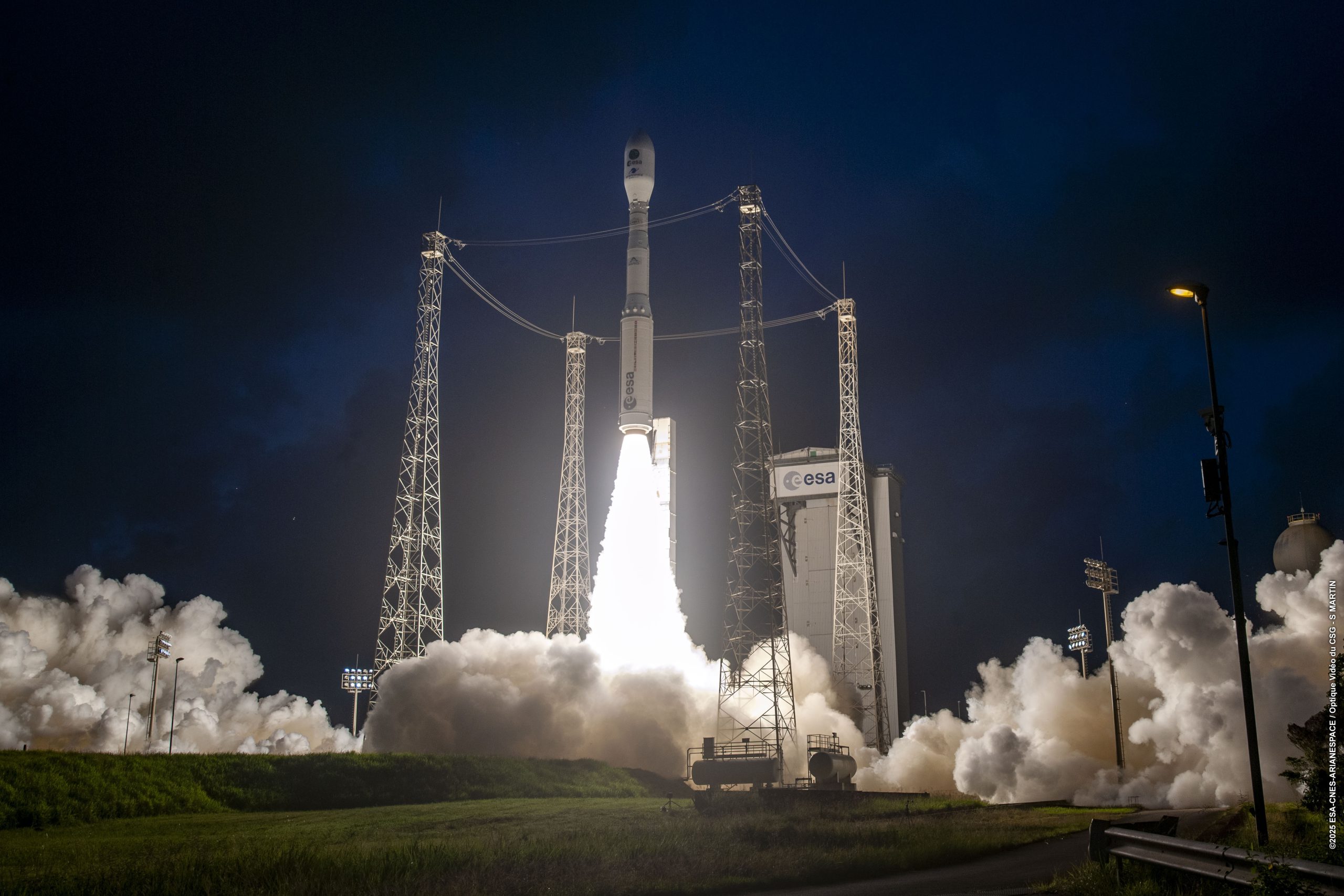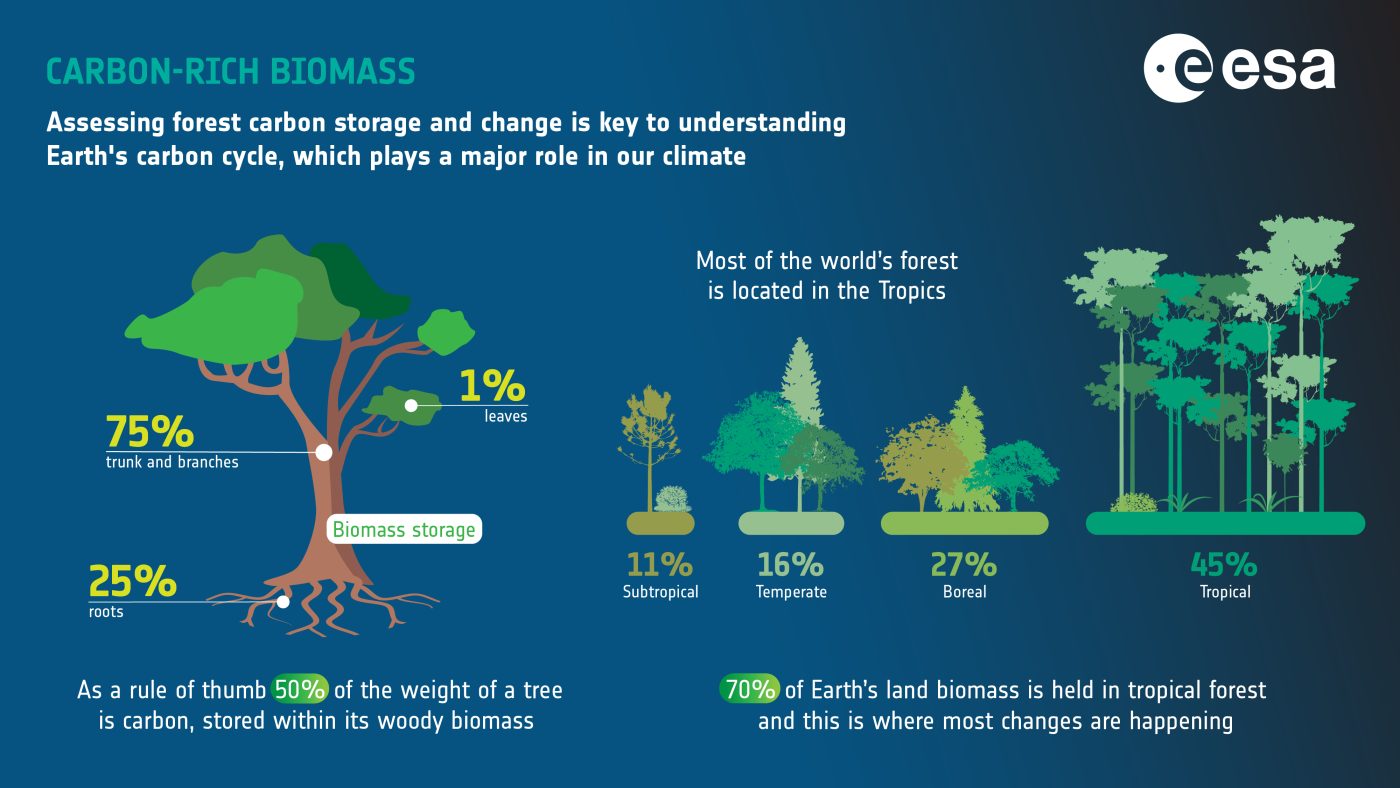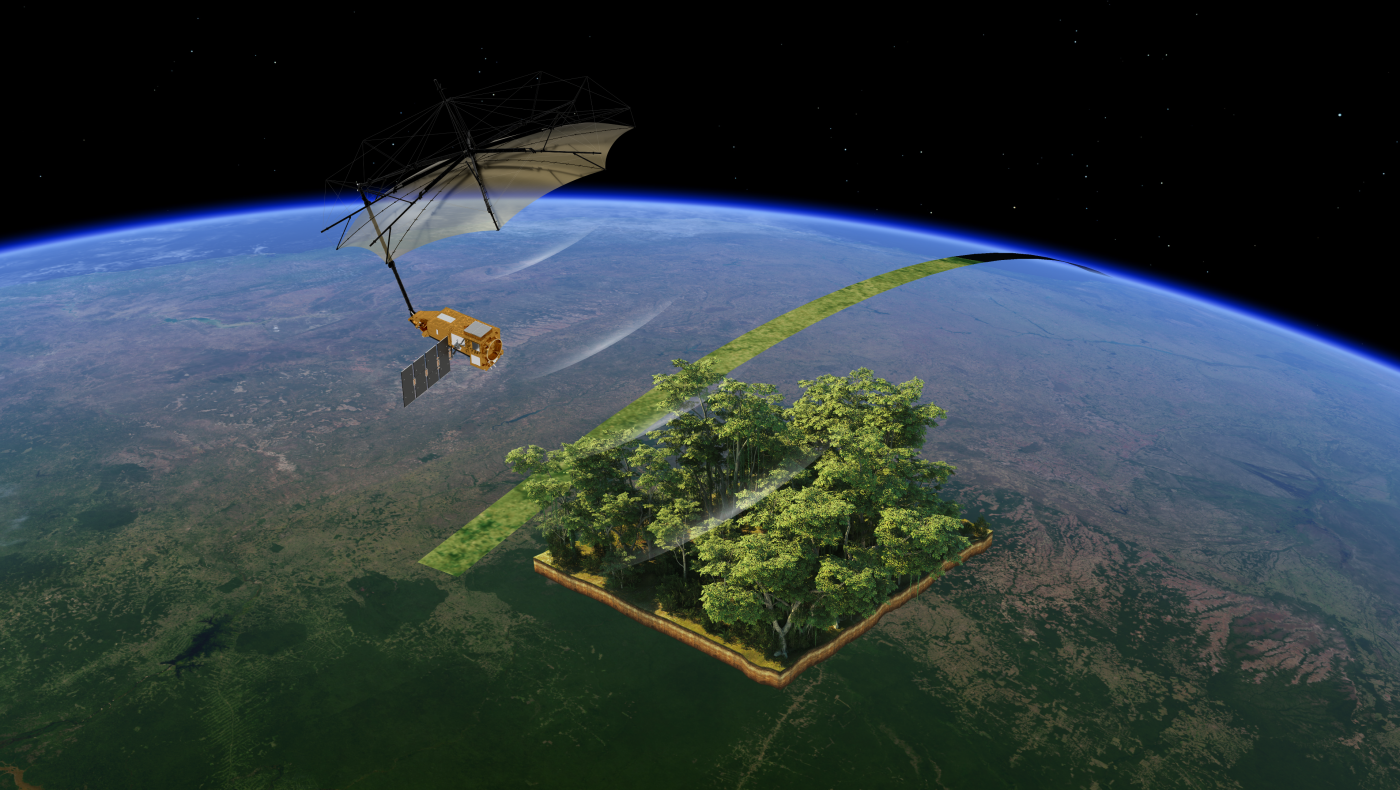
News and Media

NCEO led Mission to Map the Worlds Forest Launches

Developed by British academic and engineers, BIOMASS is set to become the first satellite in the world to map Earth’s forests in 3D with NCEO expertise.
Today (29th of April) at 10:15 AM (BST) the BIOMASS satellite was successfully launched from Kourou in French Guiana. Its aim is to enhance our understanding of how forests across the globe contribute to the carbon cycle. First conceived by NCEO’s Professor Shaun Quegan, the satellite has been built in the UK utilising our industrial and academic expertise. NCEO has formed a focussed team for BIOMASS which combines the forest and carbon expertise of its staff in Leicester, University College London, Edinburgh and Prof. Quegan in Sheffield.
It is set to become the first in the world to measure accurately carbon mass of the Earth’s forests from space by using state-of-the-art radar technology. This will be critical in helping us to gauge how tropical forests in particular are changing, and allowing us to develop more effective climate strategies. Tropical forests store around 70% of the world’s forest carbon, though this has not been effectively quantified. The satellite will create 3D maps of tropical forests after 17 months, then new (non-3D) maps every 9 months until the culmination of its 5-year mission.

Shaun Quegan, lead proposer of the mission concept to the European Space Agency, said:
It’s been a privilege to have led the team in the development of a pioneering mission that will revolutionise our understanding of the volume of carbon held in the most impenetrable tropical rainforests on the planet and, crucially, how this is changing over time. Our research has solved critical operational scientific problems in constructing the Biomass satellite.
Professor Shaun Quegan – NCEO and University of Sheffield
Conceived and built in the UK, Biomass is a brilliant example of what we can achieve in collaboration with our partners in industry and academia. The mission is the culmination of decades of highly innovative work in partnership with some of the best scientists in Europe and the US.”
BIOMASS utilises revolutionary P-band technology to help our scientists understand and capture how forests are changing. Both deforestation and forest growth have impacts on the carbon cycle and are critical to understanding how our climate is changing. Data on biomass, especially tropical forest biomass is very limited as they are very difficult to access. BIOMASS is able to penetrate cloud cover and measure forest biomass more accurately that current technology which only allows us to see the top of the canopy.
The P-band wavelength results in signals which are returned from trunks and branches with constitute the bulk of living carbon. By providing better data it will help to create a more accurate global carbon budget and provide us with a better understanding of carbon sinks and sources which will allow us to develop and implement more effective strategies to achieve net-zero goals. This should also allow us to have better insights into the effects of a changing environment on biodiversity.

NCEO’s Professor Heiko Balzter and Dr Nezha Acil will be developing approaches to estimate aboveground biomass from BIOMASS as part of NCEO’s national capability, strategic research activities funded by the Natural Environment Research Council (NERC) project and in partnership with ESA.
Biomass is one of the most exciting satellite missions launched during my research career. The P-band SAR is pushing the boundaries of remote sensing technology. The images will no doubt transform our understanding of global forest carbon stocks and their changes over time.”
Professor Balzter, NCEO scientist
Director of the Institute for Environmental Futures at the University of Leicester and lead of the UKRI Landscape Decisions SPF Programme
NCEO staff will be involved in the chain of BIOMASS data from understanding radiative transfer in forests, critical validation of BIOMASS data, updating of our previous African and global aboveground biomass data sets, exploitation in our unique carbon models and collaborations to understand net changes in forest carbon.
The BIOMASS mission will have a huge impact scientifically and in understanding our global inter-connectedness. What happens in the tropical forests directly affects the atmosphere where we live through carbon dioxide concentrations and long-term changes in our weather. Data from the BIOMASS mission will give us a true measure of the carbon regulation that forests provide, knowledge of the trajectories of these forests at a time of rapid change and an assessment of their vulnerabilities to climatic tipping points.”
Professor John Remedios
Executive Director of the National Centre for Earth Observation
For more information on the BIOMASS Mission click here or tune into listen to Prof John Remedios on BBC Breakfast from 1:52.
Latest News and Events





